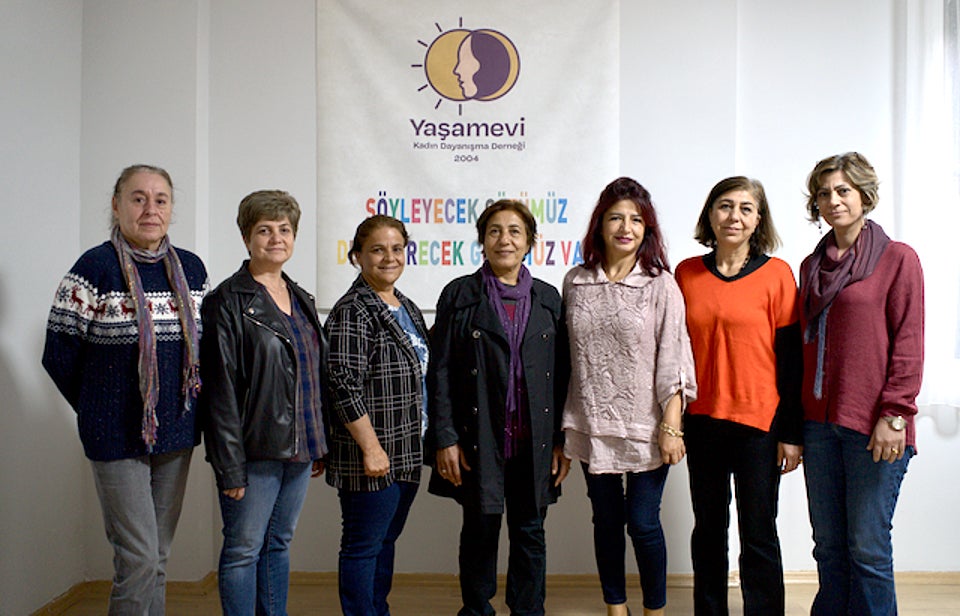Women in Şanlıurfa get a second chance in life with Lifehouse Women’s Solidarity Association
Date:

Lifehouse Women’s Solidarity Association is a civil society organization (CSO) providing psychological support and capacity building to women in Şanlıurfa, a city in Southeastern Türkiye. Recently, the association received support from UN Women Türkiye’s within the EU-funded Strong Civic Space for Gender Equality project.
“When we established the association, no one thought we would succeed. Even our families expected us to fail,” says Sevinç İzol Özipek, founding member of Lifehouse Women’s Solidarity Association. “It’s been 18 years since we first started. Our association is an example of how women can succeed in anything they want to achieve, against all odds.”
One of the better-known women’s organizations in Şanlıurfa, Lifehouse was founded in 2004 with the aim to achieve gender equality and support women’s economic empowerment, access to legal rights and encourage them participate actively in public life. In 2011, the association expanded its scope of work by starting the Mesopotamia Women’s Cooperative, which promotes women’s entrepreneurship and is still in business.
“Thanks to Lifehouse, women have become aware of what they are capable of,” says Rojda Dinç, the association’s Social Worker, as she talks about the importance of having such an organization in Şanlıurfa. “Most women in Şanlıurfa do not know their legal rights and even if they do, they feel hesitant to defend them. As we inform them about their legal rights and provide psychological support, we see them become more empowered. We also do follow-up meetings to keep track of their situation and intervene when needed.”
With the small-grant support from UN Women Türkiye, the association has formed a 13-people team for First-Step applications. The team evaluates applications 24/7 and forwards the applicants’ status and needs with the Social Worker. The First-Step team members have received in-depth trainings on feminist communication techniques, case and crisis management and the implementation of the Law No. 6284, to Protect Family and Prevent Violence Against Women. Law No. 6284 is the main legislative piece that regulates preventive and protective measures on violence against women.
Through gender equality and gender-responsive trainings, members of Lifehouse have learned the right way to approach women seeking for support. “It used to take me weeks to get over the stories of women survivors who visited Lifehouse,” says Dilşa Yüce, Board Member. “I thought that the more I empathized with them, the more support I could give. With the First Step trainings we received, I learned that my approach was wrong. I now know that we are not saviors, we are just here to listen and support these women,” she adds.
With the small-grant support, the association has also organized capacity building trainings on social media management. This has allowed the members to develop their social media strategy in addition to improving the association’s social media accounts. Board Member Sema Köroğlu shares explains: “I found out that I knew so little about visibility. Now I can build a strategy for our Association’s social media accounts to reach more women in Şanlıurfa.”
Every member has a story that brought them to join the association which has become one of the largest women’s civil society organizations in the region. The members not only state that women get a second chance in life with Lifehouse, but also define the association as a “second family where they learn the power of sisterhood.”
Under the Strong Civic Space for Gender Equality project, financed by the European Union and implemented by UN Women Türkiye, civil society organizations like Lifehouse Women’s Solidarity Association receive small-grant support to strengthen their capacities to advance women’s rights and gender equality.